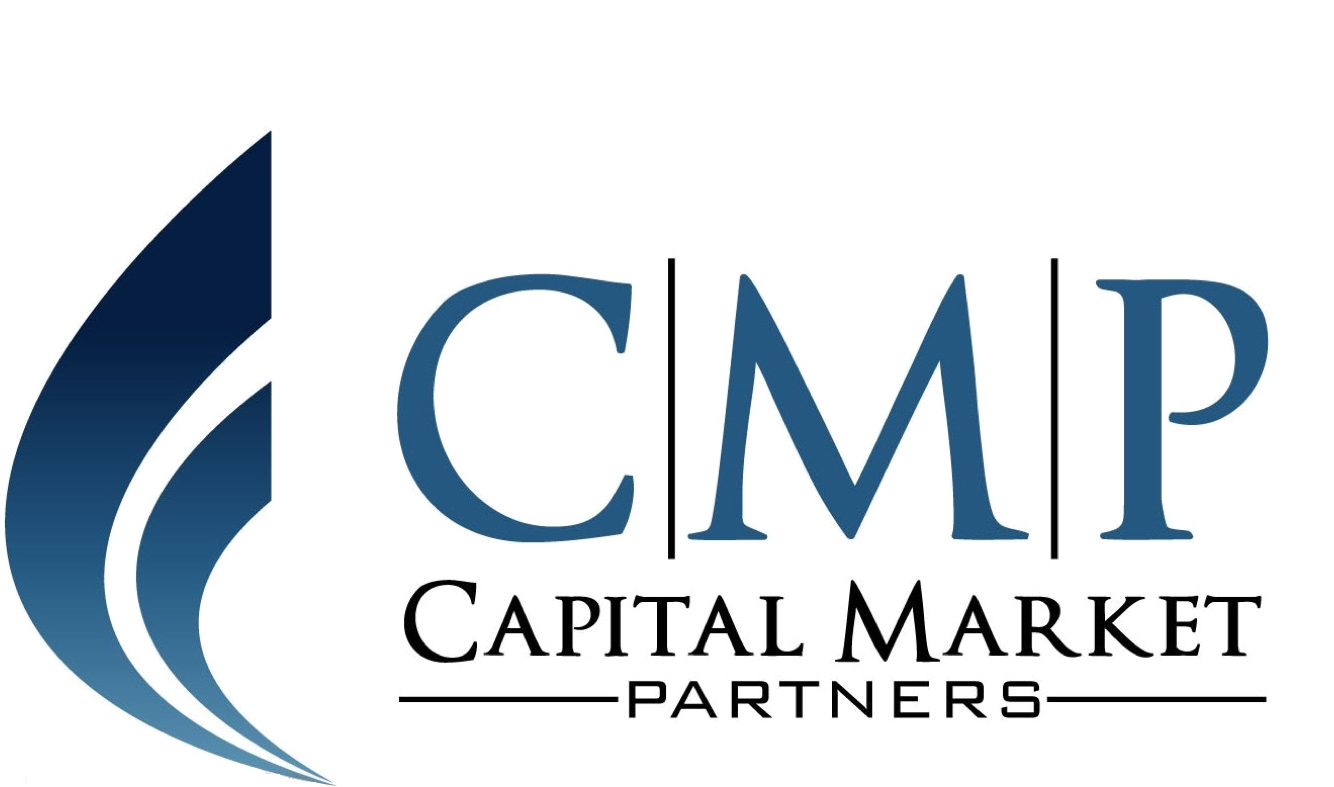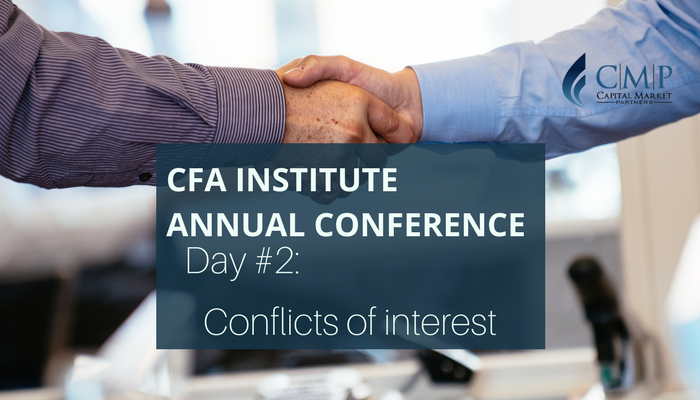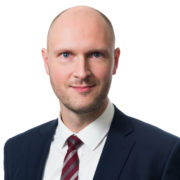CFA: Day #2: The conflicts of interest between clients and investment management service providers
Second day at the CFA Institute Annual Conference, Kenneth Brandborg, Associate Partner highlights his key learning points and reflections from today’s debates and speakers.
By Kenneth Brandborg, Associate Partner | The 23rd of May 2017, Philadelphia, USA
What is finance for?
This bold question was asked by Poul Smith, CEO of the CFA Institute.
He gave quite a harsh opening speech addressing the conflicts of interest between clients and investment management service providers.
It was liberating to hear Poul so honestly challenging the current structure in the industry. This makes the CFA Institute so much more important, as it gives them a key role in securing the integrity of the profession.
It was a very surprising take on the industry challenges, but none the less very appreciated. This leads me to my key findings from the second day:
- The trust issue was addressed very directly. I mentioned the subject in yesterday’s post, but it is clear from today that the issue receives a lot of attention.
- Like Europeans love discussing Donald Trump without understanding USA, it seems that Americans love discussing the Euro without understanding Europe. Since my first CFA Annual Conference in 2007, there have always been speakers telling us that the Euro will drop in the future.
- Besides the fuzz about trust and macroeconomic issues, the foundation of the industry is still based on skilled professionals building models and analyzing data to create the best portfolios they can.
The efficient market hypothesis – Not a fit for the real world
Picking up from where I left off yesterday. Thaler gave a super opening keynote speech, where he mocked the efficient market hypothesis (EMH). Just one week ago, I advised four of my master thesis students to include EMH in their thesis. It gives you a very nice and elegant connection between Markow processes and economics.
Unfortunately, I must agree with Thaler.
EMH does not apply to the real world. A bad feature for an economic theory.
In this morning’s corporate presentation, Glenmede Investment Management, presented a passive plus way of constructing a portfolio harvesting the volatility risk premium. Part of the sustainability of this strategy was due to regulation that made it too capital intensive for banks to sell put options. That is regulatory arbitrage in its purest form – Obviously that does not fit with the EMH.
Do investment managers do anything else than harvesting fees, ignoring the client and the benefit for the society?
Now let’s return to Smith’s opening speech. He drew a picture of the American’s wealth as an area with too many having saved all too little for their retirement, where declining returns are combined with rising fees. It left us with the question: Do investment managers do anything else than harvesting fees, ignoring the client and the benefit for the society?
…they are serious and hard working professionals with a genuine interest in the investment management industry.
Again, I am sure that the industry is not populated with angels. In fact, the industry is populated with people interested in money. So of course, there are people and firms that exploit clients. But my overall impression of my fellow CFA institute annual conference participants is that they are serious and hard working professionals with a genuine interest in the investment management industry.
The one flaw I see, is the vast distance between working with academic models and disciplines within the industry and the clients. Those two are so very far apart.
Investments are driven into alternative investments
I think we need to start by acknowledging that we are operating in an uncertain world. We need to share that burden. Currently the world is in a quantitative easing drug, where all these uncertainties are numbed by the sheer amount of money that is overwhelming the markets. Deflating interest rates and inflating equity indexes.
This means that investments are driven into alternative investments.
That is a blurred asset class where trust and diligence is even more important to the client and the society. But it is also an area, where finance can play an active role for society. Investments in roads, infrastructure, clean energy and so on. Maybe responsible investing is part of the answer.
It will still yield the same low returns, but now investing is contributing to society.
The distance between the investment management industry populated with well-educated well paid individuals and the ‘mob’ is growing. The gap between the elite and the ‘normal’ population gives rise to populism.
The rise in populist parties during the last ten years has been dwarfed only ones in a historic perspective – and that is only slightly.
I cannot help to think that maybe restoring trust into the investment management industry isn’t our greatest concern.
You might have guessed that the rise in the 1930s were just slightly bigger. Being tired and slightly pessimistic, I cannot help to think that maybe restoring trust into the investment management industry isn’t our greatest concern. Or maybe these two subjects are in fact interconnected.
Stock market showdown: Schiller and Siegel
I wrote earlier this week, that I looked forward to hearing Schiller. I did hear him, and I must admit I was a bit disappointed. The setup was quite funny though. It was a showdown between Schiller and Siegel. Both highly esteemed professors within finance, old friends and with very opposite views on the current stock markets.
Schiller thinks they are overvalued, Siegel thinks they are not.
Both highly esteemed professors within finance, old friends and with very opposite views on the current stock markets.
This reminds me of my first Annual Conference in New York in 2007. Back then half the participants argued that the housing market was a bubble the other half argued it was not.
History told us who was right. Let’s see who will be right this time. Maybe there is a bubble, but if we are lucky the central banks will be able to draw back the QE-programs and thereby letting the air out of the balloon without a big bang like last time.
One last remark.
I always forget how long the days at the conference are. We begin at 7:30 AM with the first presentations, and the clock hits 10 PM before I return to my room. Very tired and very glad to have spent a day with fellow professionals and great speakers.
You can read about Kenneth Brandborg’s initial thoughts and expectations and the first day’s conference kickoff here.
Kenneth Brandborg, Associate Partner
Kenneth, CFA charter holder, has worked in the financial sector since 2001 with focus on implementation and development of risk management, performance calculation and investment management systems.
Read more about Kenneth and our other CMP consultants here




